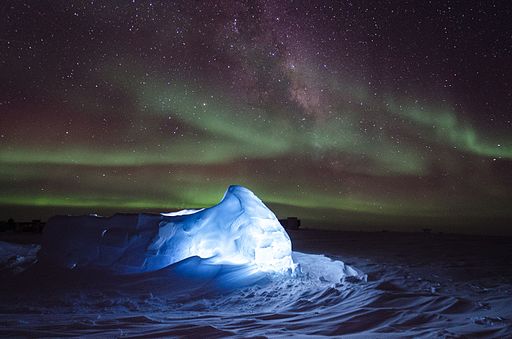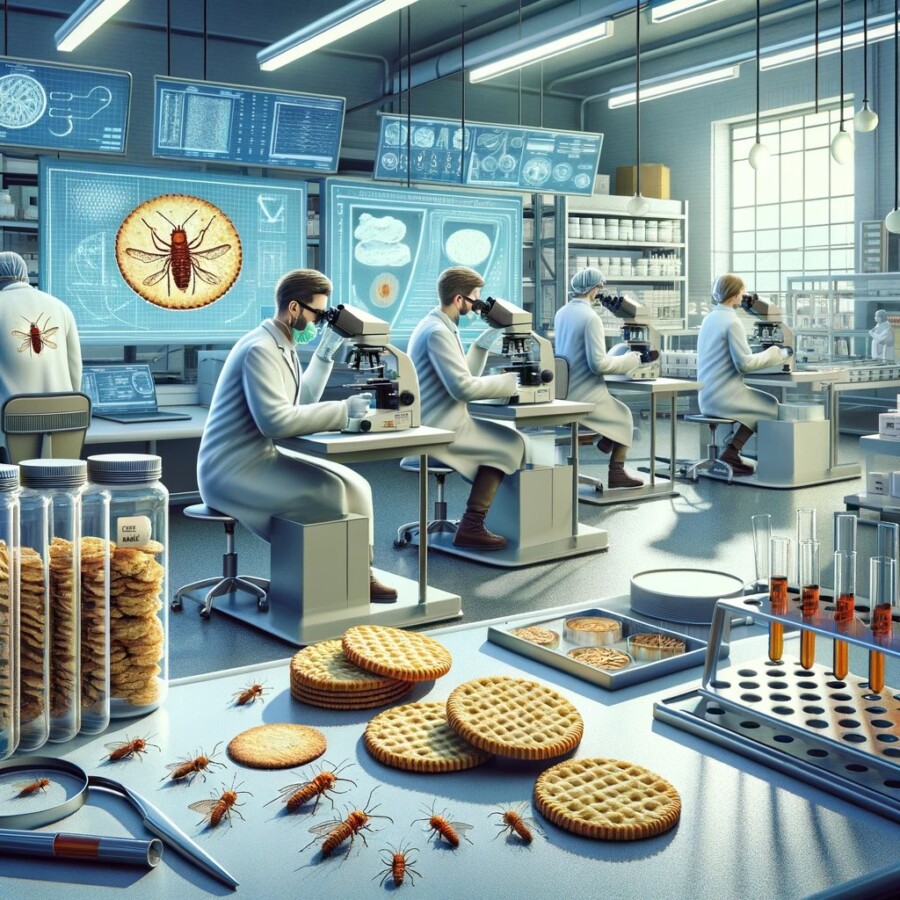New Zealand is the first country in the world to stop the use of thin plastic bags in supermarkets. These bags are usually used for fruits and vegetables. This law started on Saturday. It is part of a big plan by the government to stop using plastics that are only used once. Most people in New Zealand already bring their own bags to the store. This is because thicker plastic bags were banned in 2019.
Rachel Brooking, who helps with the environment in the government, said New Zealand makes too much waste. She also said that since the 2019 ban, more than one billion plastic bags have been saved. This new law is expected to stop the use of 150 million plastic bags each year.
However, some people are worried that people will just use paper bags instead, which are still in the stores. But Ms. Brooking said the goal is to reduce the use of any kind of single-use packaging. She said they want people to bring their own bags. Some supermarkets are even selling bags that can be used many times. They hope this will make people use these bags for their fruits and vegetables instead of single-use bags.
New Zealand is also doing other things to help with climate change. For example, they are thinking about making farmers pay for the gases that cows and sheep make. These gases are bad for the environment. They are planning to start this in 2025. About half of the bad gases in New Zealand come from farms.
Original news source: New Zealand bans plastic bags for fresh produce in supermarkets (BBC)
Listen
Slow
Normal
Fast
Group or Classroom Activities
Warm-up Activities:
– BAG VOCABULARY GAME
Instructions: Write different types of bags on the board (e.g., backpack, handbag, plastic bag, paper bag, tote bag, etc.). Divide the class into two teams. Each team takes turns sending a member to the board to draw one of the bags, while their team guesses what kind of bag they are drawing.
– ROLE PLAY ACTIVITY
Instructions: Divide students into pairs. One student plays a supermarket cashier, the other plays a customer. They should role-play a conversation where the cashier suggests the customer buy a reusable bag instead of using plastic or paper ones.
– PLASTIC POLLUTION BRAINSTORM
Instructions: Begin a discussion about the problems caused by plastic pollution. Ask students to brainstorm ideas for reducing plastic use in their own lives. Write their ideas on the board and discuss the feasibility and impact of each idea.
Comprehension Questions:
1. What kind of bags did New Zealand stop using in supermarkets?
2. When did this new law start?
3. Why do most people in New Zealand bring their own bags to the store?
4. Who is Rachel Brooking?
5. What did Rachel Brooking say about the amount of waste New Zealand makes?
6. What is the new law expected to do each year?
7. What does Rachel Brooking want people to do instead of using single-use bags?
8. What is one other thing New Zealand is doing to help the environment?
Go to answers ⇩
Listen and Fill in the Gaps:
New Zealand is the first country in the world to stop the use of thin plastic bags in (1)______. These bags are usually used for fruits and vegetables. This law started on (2)______. It is part of a big plan by the government to stop using plastics that are only used once. Most people in New Zealand already bring their own bags to the store. This is because thicker plastic bags were banned in (3)______.
Rachel Brooking, who helps with the environment in the government, said New Zealand makes too much waste. She also said that since the 2019 ban, more than one billion plastic bags have been saved. This new law is expected to stop the use of 150 million plastic bags each (4)______.
However, some people are worried that people will just use paper bags instead, which are still in the stores. But Ms. Brooking said the goal is to reduce the use of any kind of single-use packaging. She said they want people to bring their own bags. Some supermarkets are even selling bags that can be used many times. They hope this will make people use these bags for their fruits and vegetables instead of (5)______ bags.
New Zealand is also doing other things to help with climate change. For example, they are thinking about making farmers pay for the gases that cows and sheep make. These gases are bad for the environment. They are planning to start this in (6)______. About half of the bad gases in New Zealand come from (7)______.
Go to answers ⇩
Discussion Questions:
Students can ask a partner these questions, or discuss them as a group.
1. Do you know where New Zealand is?
2. What did New Zealand stop using in the stores?
3. Why did they stop using thin plastic bags?
4. Do you bring your own bag to the store?
5. How many plastic bags have been saved since 2019 in New Zealand?
6. What is the new law expected to do?
7. What are some people worried about?
8. What does Ms. Brooking want people to do?
9. Are some stores selling bags that can be used many times?
10. What else is New Zealand doing to help the environment?
11. What are they thinking about making farmers do?
12. Why are the gases from cows and sheep bad?
13. When are they planning to start making farmers pay for the gases?
14. Where do half of the bad gases in New Zealand come from?
15. Do you think it’s a good idea to stop using plastic bags? Why or why not?
Individual Activities
Vocabulary Meanings:
Match each word to its meaning.
Words:
1. Supermarkets
2. Environment
3. Waste
4. Law
5. Plastic bags
6. Climate change
7. Farmers
8. Gases
Shuffled Meanings:
A) The air, water, and land where people, animals, and plants live
B) Things that are not needed and are thrown away
C) Changes in the weather patterns of the Earth that last a long time
D) A rule made by a government that everyone has to follow
E) Thin, flexible containers made from a light, strong material that can be used once and then thrown away
F) People who grow food on a large piece of land
G) Stores where people buy food and other things for their homes
H) Things that float in the air that you can’t see but can sometimes smell.
Go to answers ⇩
Multiple Choice Questions:
1. Which country is the first to stop using thin plastic bags in supermarkets?
(a) Australia
(b) New Zealand
(c) Canada
(d) United States
2. What were these thin plastic bags usually used for?
(a) Fruits and vegetables
(b) Meat and fish
(c) Canned goods
(d) Cleaning supplies
3. When did the law to stop using thin plastic bags start?
(a) Sunday
(b) Monday
(c) Friday
(d) Saturday
4. What was banned in New Zealand in 2019?
(a) Paper bags
(b) Thicker plastic bags
(c) Glass bottles
(d) Aluminum cans
5. Who said that New Zealand makes too much waste?
(a) The president of New Zealand
(b) A school teacher
(c) A supermarket owner
(d) Rachel Brooking
6. How many plastic bags have been saved since the 2019 ban?
(a) More than one million
(b) More than one hundred
(c) More than one billion
(d) More than one thousand
7. What is the goal of the new law according to Ms. Brooking?
(a) To make people buy more fruits and vegetables
(b) To reduce the use of any kind of single-use packaging
(c) To make supermarkets sell more reusable bags
(d) To make people use more paper bags
8. What is New Zealand planning to do in 2025 to help with climate change?
(a) Make farmers pay for the gases that cows and sheep make
(b) Ban all plastic products
(c) Plant more trees
(d) Stop using cars and buses
Go to answers ⇩
True or False Questions:
1. New Zealand is the first country to stop using thin plastic bags in stores.
2. The law to stop using thin plastic bags started on Monday.
3. People in New Zealand started bringing their own bags to the store in 2019.
4. Rachel Brooking said New Zealand makes very little waste.
5. The new law will stop the use of 150 million plastic bags each year.
6. Ms. Brooking said they want people to use more single-use packaging.
7. Some supermarkets in New Zealand are selling bags that can be used many times.
8. New Zealand is thinking about making farmers pay for the gases that cows and sheep make in 2030.
Go to answers ⇩
Write a Summary:
Write a summary of this news article in two sentences.
Writing Questions:
Answer the following questions. Write as much as you can for each answer.
1. What did New Zealand do that no other country has done before?
2. What are the thin plastic bags usually used for?
3. Why did New Zealand ban thicker plastic bags in 2019?
4. How many plastic bags have been saved since the 2019 ban?
5. Why do some people worry about using paper bags instead?
Answers
Comprehension Question Answers:
1. What kind of bags did New Zealand stop using in supermarkets?
New Zealand stopped using thin plastic bags in supermarkets.
2. When did this new law start?
This new law started on Saturday.
3. Why do most people in New Zealand bring their own bags to the store?
Most people in New Zealand bring their own bags to the store because thicker plastic bags were banned in 2019.
4. Who is Rachel Brooking?
Rachel Brooking is a person who helps with the environment in the government.
5. What did Rachel Brooking say about the amount of waste New Zealand makes?
Rachel Brooking said that New Zealand makes too much waste.
6. What is the new law expected to do each year?
The new law is expected to stop the use of 150 million plastic bags each year.
7. What does Rachel Brooking want people to do instead of using single-use bags?
Rachel Brooking wants people to bring their own bags instead of using single-use bags.
8. What is one other thing New Zealand is doing to help the environment?
One other thing New Zealand is doing to help the environment is thinking about making farmers pay for the gases that cows and sheep make.
Go back to questions ⇧
Listen and Fill in the Gaps Answers:
1. supermarkets
2. Saturday
3. 2019
4. year
5. single-use
6. 2025
7. farms
Go back to questions ⇧
Vocabulary Meanings Answers:
1. Supermarkets
Answer: G) Stores where people buy food and other things for their homes
2. Environment
Answer: A) The air, water, and land where people, animals, and plants live
3. Waste
Answer: B) Things that are not needed and are thrown away
4. Law
Answer: D) A rule made by a government that everyone has to follow
5. Plastic bags
Answer: E) Thin, flexible containers made from a light, strong material that can be used once and then thrown away
6. Climate change
Answer: C) Changes in the weather patterns of the Earth that last a long time
7. Farmers
Answer: F) People who grow food on a large piece of land
8. Gases
Answer: H) Things that float in the air that you can’t see but can sometimes smell.
Go back to questions ⇧
Multiple Choice Answers:
1. Which country is the first to stop using thin plastic bags in supermarkets?
Answer: (b) New Zealand
2. What were these thin plastic bags usually used for?
Answer: (a) Fruits and vegetables
3. When did the law to stop using thin plastic bags start?
Answer: (d) Saturday
4. What was banned in New Zealand in 2019?
Answer: (b) Thicker plastic bags
5. Who said that New Zealand makes too much waste?
Answer: (d) Rachel Brooking
6. How many plastic bags have been saved since the 2019 ban?
Answer: (c) More than one billion
7. What is the goal of the new law according to Ms. Brooking?
Answer: (b) To reduce the use of any kind of single-use packaging
8. What is New Zealand planning to do in 2025 to help with climate change?
Answer: (a) Make farmers pay for the gases that cows and sheep make
Go back to questions ⇧
True or False Answers:
1. New Zealand is the first country to stop using thin plastic bags in stores.
Answer: True
2. The law to stop using thin plastic bags started on Monday.
Answer: False
3. People in New Zealand started bringing their own bags to the store in 2019.
Answer: True
4. Rachel Brooking said New Zealand makes very little waste.
Answer: False
5. The new law will stop the use of 150 million plastic bags each year.
Answer: True
6. Ms. Brooking said they want people to use more single-use packaging.
Answer: False
7. Some supermarkets in New Zealand are selling bags that can be used many times.
Answer: True
8. New Zealand is thinking about making farmers pay for the gases that cows and sheep make in 2030.
Answer: False
Go back to questions ⇧












